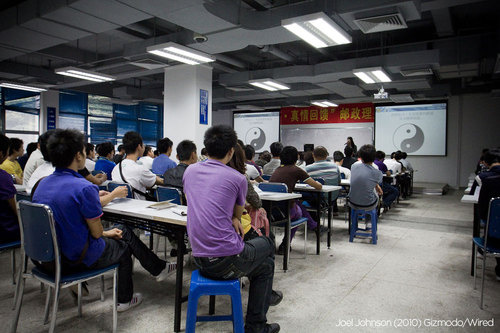Last week, China’s State Council announced plans to construct a series of “world-class” universities and post-secondary programs by 2020. At the South China Morning Post, Li Jing notes that experts have expressed concerns about the feasibility of this goal amid ideological guidance campaigns in higher education:
To create institutions that can compete with the best, teachers and administrators must have independence to structure the learning environment, they argue.
[…] The blueprint also called for stronger party leadership and ideological work at higher education institutions.
But the two goals could be difficult to reconcile, according to Xiong Bingqi, deputy director of the 21st Century Education Research Institute.
[…] “Chinese universities do not need to be modelled after Harvard or Cambridge. They can have their own characteristics, but autonomy is key for future reform of the education system,” Xiong said. [Source]
[…] Similar controversies could also arise at GIX. While the leader of the project on the Chinese side, Zhang Tao, argues that one of the advantages of the collaboration is that Americans who hope to sell tech products in Asia will be exposed to Chinese preferences and business practices through courses with Chinese students and faculty, the program’s emphasis on technology also raises potential concerns. Particularly troubling are issues surrounding Internet censorship and intellectual property protection where practices in the two countries diverge sharply. Nevertheless, given the Chinese government’s commitment to expanding soft power through education, collaborations between Chinese and American universities on this side of the Pacific seem poised to spread. [Source]








